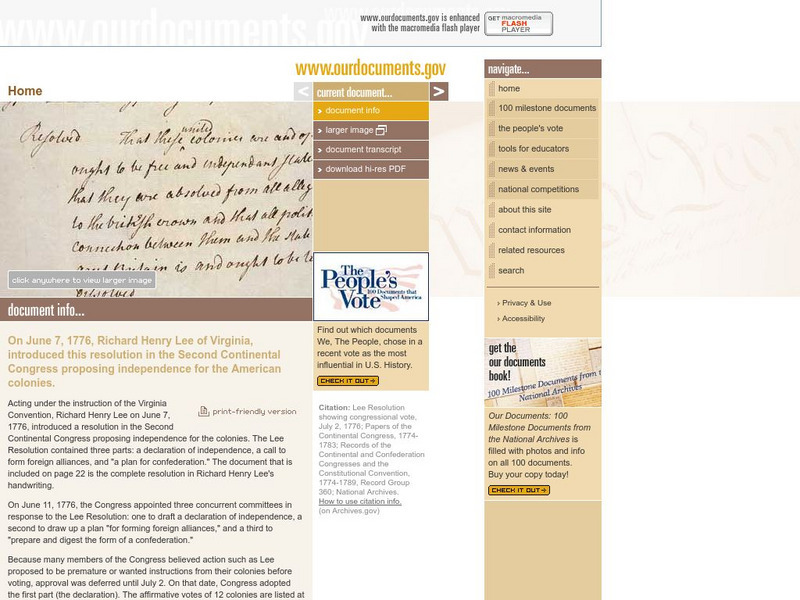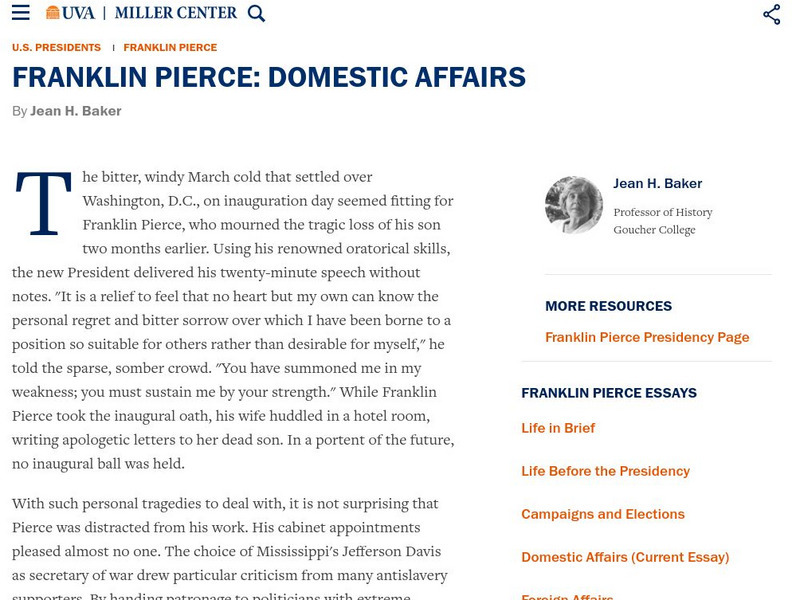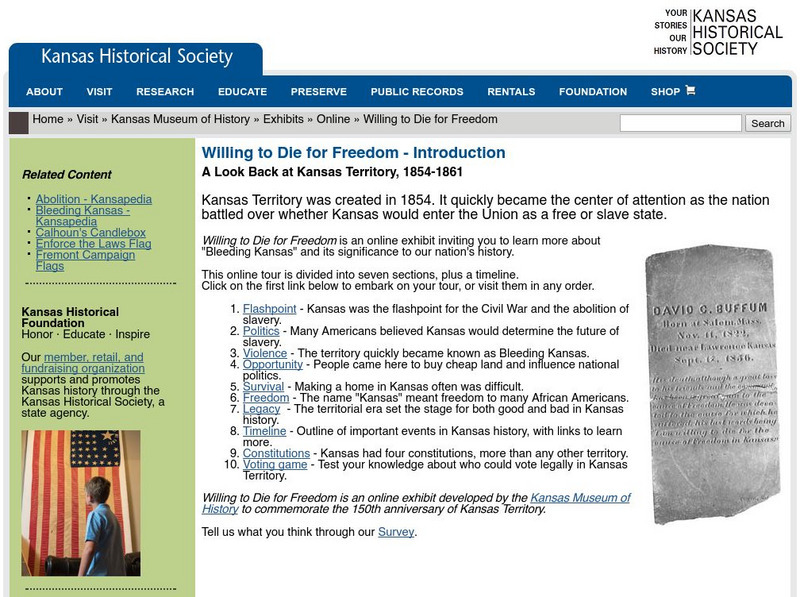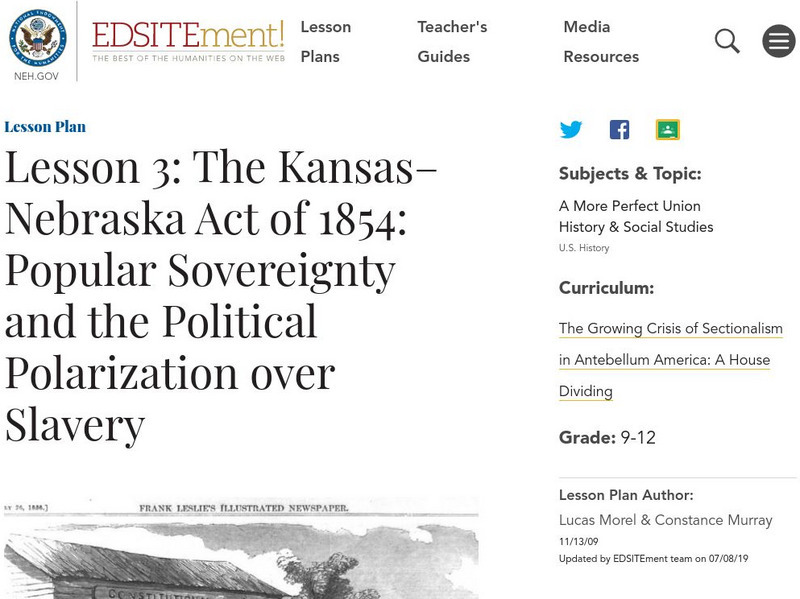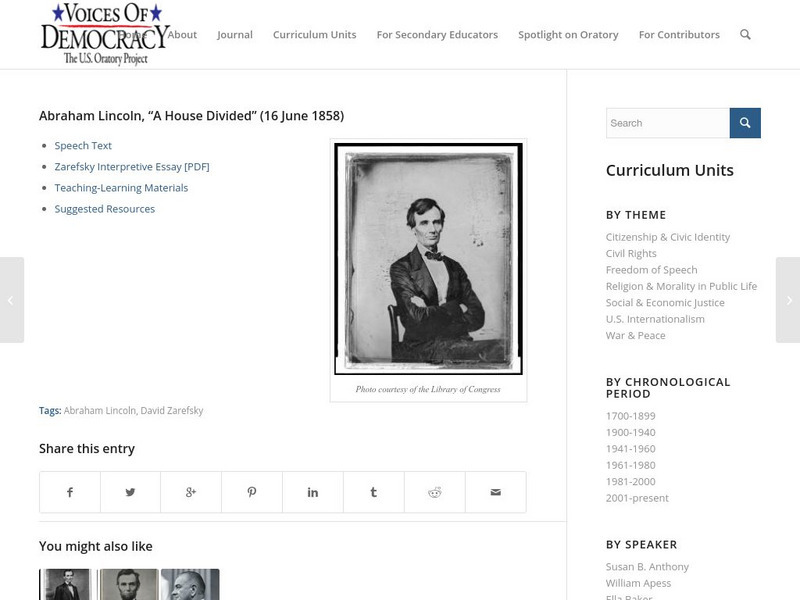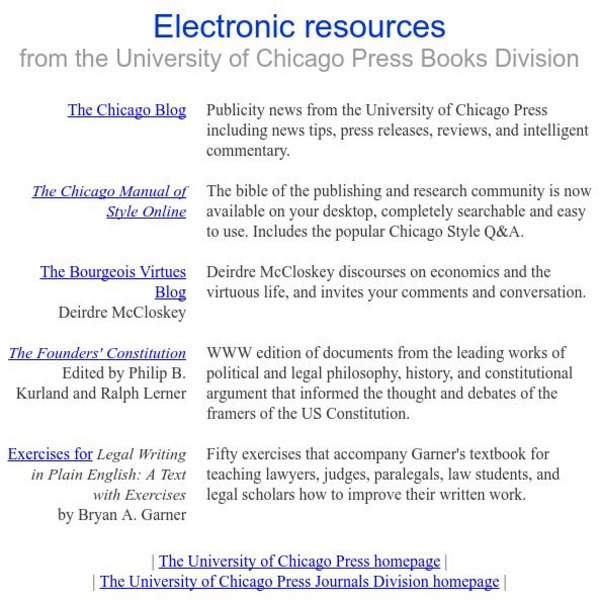Carolina K-12
Principles of the US Constitution
After breaking into groups according to major principles of government (i.e., popular sovereignty, separation of powers, checks and balances, etc.) in the United States, your class members will produce public service announcements...
Constitutional Rights Foundation
What Is Constitutional Democracy?
Rediscover the values at the heart of American democracy and what makes it unique with your pupils. Use a reading and discussion questions—in addition to an analytical activity—on the preamble to the Constitution. An additional activity...
Student Handouts
Constitutional Principles
Keep track of constitutional principles with a graphic organizer. Pupils define, describe the origins of, and note down the location of the following terms: checks and balances, federalism, individual rights, limited government, popular...
Curated OER
The Kansas-Nebraska Act of 1854: Popular Sovereignty and the Political Polarization over Slavery
Why did Stephen Douglas support the Kansas-Nebraska Act of 1854? Why did Abraham Lincoln oppose it? Young historians examine how the Kansas-Nebraska Act of 1854 affected the political balance between free and slave states and explore how...
Curated OER
The Coming of Independence
Provide your learners with an opportunity to show what they know. Have them answer 10 questions on colonial America, 13 Colonies, colonial legislature, and popular sovereignty. There are 5 true/false and 5 multiple choice questions.
Curated OER
Causes of the Civil War: Missouri Compromise, Compromise of 1850 and Kansas Nebraska Act
How did the Missouri Compromise, the Compromise of 1850, and the Kansas-Nebraska Act contribute to the growing tensions that led to the Civil war? To better understand the events that led to the Civil War, young historians engage in a...
Curated OER
Popular Sovereignty Under the Kansas-Nebraska Act
Seventh graders examine the implications of the Kansas-Nebraska Act. In this slavery lesson, 7th graders examine a map of 1820 America and discuss the balance of power implied by the map. Students then read Stephen Douglas's speech on...
Curated OER
Sectionalism and the Kansas-Nebraska Act
Students define and discuss sectionalism and popular sovereignty, analyze impact of popular sovereignty in creation of state of Kansas, compare issues in territorial Kansas to current politically divisive topic, and evaluate primary...
Curated OER
Government and Politics
After a class lesson the U.S. Constitution and its amendments, students can apply their knowledge to this activity. Several questions prompt students to add missing key terms, such as the year the Constitution was written and the number...
Curated OER
Maryland During the Secession Crisis
Students identify the problems Maryland encountered during the secession crisis. They analyze census data and through an examination of the resolutions made by Maryland's Southern Rights Convention of 1861.
Curated OER
Sectionalism, Popular Sovereignty, and Secession
Students examine sequence of national events that resulted in the Civil War by using primary sources, and creating timelines and maps.
University of Chicago
The Founders' Constitution: Popular Basis of Political Authority
Read the words of John Adams at the Constitutional Convention where he is debating the meaning of "the people" in the Constitution.
US National Archives
Our Documents: The Kansas Nebraska Act
An outstanding, interactive copy of the Kansas-Nebraska Act, the legislation that repealed the Missouri Compromise. Historical context included, as well as links to larger images, a typed transcript, and a downloadable PDF file.
PBS
Pbs: Bleeding Kansas 1853 1861
This site details events surrounding the era known as "Bleeding Kansas" due to the conflict surrounding slavery in what is now Kansas.
US National Archives
National Archives: Teaching Six Big Ideas in the Constitution
The Constitution can be broken down into 6 main themes: Limited Government, Federalism, Republicanism, Separation of Powers, Checks and Balances, and Popular Sovereignty. Students will study background on the Founding Fathers and use...
OpenStax
Open Stax: 1775 1783: Britain's Law and Order Strategy and Its Consequences
This section of a chapter on "America's War for Independence" deals with Great Britain's response to the destruction of a British shipment of tea in Boston Harbor in 1773 and how it set the stage for the Revolution.
OpenStax
Open Stax: The Compromise of 1850
From a chapter on " Troubled Times: the Tumultuous 1850s," this section explains the contested issues that led to the Compromise of 1850 and describes and analyzes the reactions to the 1850 Fugitive Slave Act.
University of Virginia
Miller Center at Uva: u.s. Presidents: Franklin Pierce: Domestic Policies
As Franklin Pierce became president, the question of slavery in the territories occupied his handling of his domestic policies. Read about the passage of the Kansas-Nebraska Act and the resulting turmoil in Kansas as abolitionists and...
Kansas Historical Society
Willing to Die for Freedom: Look Back at Kansas Territory
This online exhibit teaches you about "Bleeding Kansas." Follow the hyperlinks to obtain a wealth of information.
Nebraska Studies
Nebraska Studies: Kansas Nebraska Act Signed
This is a narrative detailing the signing of the Kansas-Nebraska Act in 1854 and the controversy that grew from it.
National Endowment for the Humanities
Neh: Edsit Ement: The Kansas Nebraska Act of 1854
An exploration of how the Kansas-Nebraska Act of 1854 impacted the debate between free and slave states, and the precarious political equilibrium. It looks at how Stephen Douglas tried to avoid a national conflict in the debate over...
University of Maryland
Voices of Democracy: Abraham Lincoln, "A House Divided" (16 June 1858)
Read the full text of the "House Divided" speech that Lincoln delivered on June 16, 1858, as he accepted the Republican nomination for the U.S.Senate seat from Illinois that was held by Stephen A. Douglas. This speech exemplifies...
US Department of State
Bureau of International Information Programs: History Outline: Sectionalism
Article reviews several conditions of American society that sowed the seeds of civil war, particularly slavery and sectional conflict.
University of Chicago
The Founders' Constitution
The University of Chicago provides thousands of primary source documents concerning the diverse contents of the Constitution. Documents underlying the proposed Constitution, as well as documents of the time debating the proposed...














